|
By Alexandria Staubach
Gov. Tony Evers has been busy considering bills from the Legislature, tackling 51 bills on Dec. 6 alone. In what WJI sees as a win for the criminal justice system, Evers vetoed Senate Bill 86/Assembly Bill 57, which would have erased prosecutorial discretion to dismiss or amend certain charges without prior authorization from the court and prohibited deferred-prosecution sentences for crimes. WJI opposed the bill’s lack of clear procedure for dismissal authorization and its prohibition of deferred prosecutions in appropriate cases. Those outcomes would have increased burdens on the criminal justice system without providing appropriate resources to deal with the fallout. Voting and criminal justice legislation signed into law by Evers included the following: Assembly Bill 335 (Wisconsin Act 52) Specifies that if a candidate is convicted of certain election crimes, a court must order dissolution of the candidate’s committee and return of unencumbered campaign funds; also requires the court to appoint a new treasurer for the committee to carry this out. Senate Bill 283 (Wisconsin Act 53) Provides that if a municipality, county, or commission chooses to broadcast canvassing proceedings live in any election, including live stream or on the internet, the same entity must record the broadcast; the recording must be retained for 22 months. Senate Bill 433 (Wisconsin Act 54) Modifies current law so the requirement that presidential primary absentee ballots be sent at least 47 days in advance of the election applies only to military and overseas voters; all other voters will be sent the presidential primary absentee ballot at least 21 days in advance. Assembly Bill 36 (Wisconsin Act 58) Creates a six-month time limit for the state crime laboratories to process sexual assault kits and an expedited 60-day timeline under certain circumstances. Assembly Bill 166 (Wisconsin Act 61) Expands the definition of “sexual contact” to include instruction by a victim to touch bodily fluids with the purpose to degrade or humiliate the victim sexually or arouse or gratify the perpetrator for purposes of crimes against children and sexual assault.
0 Comments
By Gretchen Schuldt Lawyers in the State Public Defender's office would get pay raises, as would private bar attorneys who agree to represent indigent clients, under Gov. Evers' proposed 2023-25 budget. The agency, though, would lose 63 federally funded attorney positions while gaining 50 support staff jobs. The total number of full-time positions would drop by 13 over the biennium, from 682.85 this fiscal year to 669.85 in 2025. It would also put additional pressure on lawyers already struggling with high caseloads. Evers' budget would increase the starting pay for assistant state public defenders from $26.70 per hour to $35, the same amount he proposed for assistant district attorneys. Wisconsin's pay is well below that of many other states, including those of Montana ($36.96 per hour), South Dakota ($39.59), Texas ($40.87) and Oregon ($43.60) according to the agency's budget request. SPD has had difficulty in recruiting and retaining staff attorneys, according to the request. "Despite a significant increase in the number of attorney positions posted for recruitment, there has been a decrease in the number of individual applications," the agency said. SPD turnover SPD attorney applications The pay for private lawyers who agree to represent SPD clients when staff lawyers have conflicts or workload issues would increase from $70 per hour to $100 per hour and $50 per hour for travel, under Evers' budget. SPD requested a rate of $125 per hour for in-court work, $100 for out-of-court work, and $50 for travel. The travel rate is now $25 per hour. "The current $70 per hour rate has been cited by private bar attorneys as one of the main factors in their decisions to not accept SPD case appointments," SPD said in its budget request. Counties pay at least $100 per hour when judges appoint lawyers, SPD said, giving counties a competitive advantage when seeking lawyers to take cases. "The number of attorneys who have actively taken public defender appointments has declined significantly during the pandemic, from 940 attorneys certified in January 2019 to only 772 attorneys in August 2022, a 17.9% decrease," SPD said. There now are about 770 lawyers on the appointments list, but 13% did not take any cases in fiscal 2022 and 39% took fewer than 26. "The average number of contacts statewide that it takes to appoint a private bar attorney is just over 123. In some counties, it can be more than 200, with the outliers taking more than 1,000 contacts to appoint a single case," the agency said. "There is not a county or jurisdiction in the state that has not felt these effects." It is not clear that $100 an hour will be enough to attract attorneys to take the appointments. Clio, a legal practices management firm, said in its Legal Trends Report in 2021 that the average billing rate for Wisconsin lawyers of any type is $248, and nationally the average hourly rate for criminal defense lawyers is $181, the request said. Evers refused SPD's request for $687,000 for additional expert witness expenses, even though those costs have risen 311% since 2010. He instead said the agency should reallocate funds from other areas. SPD expert witness costs He also recommended reallocating funds to cover the $402,000 in new funding SPD requested for increased costs related to transcripts, copying, discovery, and interpreters. The requested increase was the amount of the shortfall in that budget in fiscal 2022. SPD transcript, interpreter, and discovery costs Evers again proposed legalizing marijuana, as he has in the past. He also proposed "requiring a diversion and restitution alternative for certain misdemeanor offenses" but did not identify what those were. SPD proposed a diversion program for disorderly conduct offenses if the defendant has not been convicted of a felony and has not been convicted of a similar offense in the past three years.
SPD handled 4,896 disorderly conduct cases in fiscal 2022, it said in its budget request. Under its proposal, about half of those could have been diverted, saving taxpayers $1.3 million. Overall, under Evers' proposal, the SPD budget would increase from $114.7 million this year to $137 million in fiscal 2025, an increase of $22.3 million, or 19.4%. Four new circuit court branches would be opened by August, costing the state $1.1 million in fiscal 2024 and $1.2 million the following year, under Gov. Evers' proposed 2023-25 state budget. Establishing the branches would comply with 2019 Act 184, which allows the director of state courts to select the counties that will get the new branches. Evers also included $840,800 over the two years to fund additional, undefined costs associated with the new courts. Eight new state employees would staff the branches. Other employees, such as deputy court clerks, are hired at county expense.
Other items included in Evers' proposed courts budget include:
Overall, the circuit court budget, under the proposal, would increase from $116 million this fiscal year, to $118.1 million in fiscal 2024, an increase of $2.1 million, or 1.8%. It would drop to $117.2 million in 2025, a decline of 0.7% from the 2024 amount and a 1% increase from this year's budget. Evers' court proposal includes policy items proposed in other agency budgets. WJI will include them in the discussion of those budgets. The minimum pay rate for assistant and deputy district attorneys would increase from $27.24 per hour to $35 per hour under Gov. Tony Evers' proposed state budget.
Minimum annual salaries would increase from $56,659 to $72,800. The proposed increase is designed to "increase retention of experienced counsel," according to Evers' budget. The raises would cost about $7 million for each year of the biennium. Evers also is recommending one-step pay increases for assistant and deputy DAs in fiscal 2025, costing a total of $1.7 million, and increasing the pay of elected district attorneys in 2025 at a cost of $854,000. District attorney pay varies on county size. In Milwaukee County, the pay is $145,288. For Wisconsin's smallest counties, the pay is $106,288. The total number of positions would increase from 544.9 this year to 586.7 in fiscal 2024 before dropping to 546.7 in 2025. The overall budget would increase from $61.3 million in fiscal 2023 to $74.4 million in fiscal 2025, and increase of $13.1 million, or 21%. The Wisconsin Justice Initiative is calling on Gov. Tony Evers to eliminate several court fees and surcharges or redirect them to support the underfunded state court system.
The state’s $6.6 billion surplus presents the perfect opportunity to ease court-imposed financial burdens on litigants, WJI President Craig Johnson said in a letter to Evers. “It’s time for the state to step up and fund its court system,” Johnson said. “It should not place the burden on poor people, and it should not demand payment for purposes unrelated to the specific case at issue. At the very least, money collected through the courts should be used to adequately fund the courts. It should not be just another source of money for unrelated purposes.” The governor also should include in his 2023-2025 state budget proposal funding for municipal courts to provide language interpretation services and a mandate that they do so, Johnson said. Interpretation services are not required for most municipal court cases, meaning that defendants can be found guilty of offenses and fined without understanding the charges against them or what is discussed in court. Failure to pay the forfeitures can lead to a jail sentence. Johnson listed several steps Evers should take to erase or redirect court fees and surcharges. They include:
Tables of court fees and surcharges are here.  The governor should provide federal ARPA funding to help the State Public Defender's office meet the demand for lawyers to defend indigent defendants in criminal cases, WJI told Gov. Evers in a letter Thursday. The agency has not been able to recruit enough private bar attorneys to represent defendants who cannot afford their own lawyers. The lack of private lawyers willing to take on cases is a perennial problem, but it has reached the crisis stage during the COVID pandemic as courts shut down and cases backed up in the system. Counties around the state are trying to hire the same lawyers for different cases. "WJI urges you to use available ARPA (American Rescue Plan Act) money to temporarily increase funding available for private bar attorneys who accept SPD appointments. While state law sets the $70 hourly rate, you can offer designated grants to counties or private agencies to supplement the statutory rate until court backlogs are cleared," WJI Executive Director Gretchen Schuldt said in the letter. WJI proposed the private bar attorneys receive $150 per hour until the state court backlogs are cleared. Private bar lawyers now are paid $70 per hour. Lawyers who do similar work in Federal Court are paid $155 per hour.
"WJI is aware that money is not the only reason private bar lawyers are not accepting SPD cases. A significant, time-limited increase in the hourly rate will, however, encourage some additional lawyers to take additional SPD cases," Schuldt said. "It will also, significantly, help determine how big an issue pay is in attracting private bar attorneys to indigent defense work." COVID shut down many courts throughout the state, she said. "Indigent defendants sat and are still sitting in jail for much, much longer than they would under normal circumstances," Schuldt wrote. "This upends the presumption of innocence and is simply wrong. In addition, studies show that lengthy pre-trial incarceration is a major factor in compelling defendants to plead guilty, even when that is not in their best interest." "During the pandemic, many judges routinely waived speedy trial deadlines," she said. "This practice raises serious constitutional questions that have not been resolved. Trial delays should not be made longer because the state failed to act to protect defendants’ constitutional rights. The state has an obligation to do everything in its power to ensure that justice is administered fairly, competently, and in a timely manner. To stand by and do nothing while the court system drowns in caseloads is manifestly unjust." Gov. Tony Evers can free incarcerated men and women without the assistance of the State Legislature. He has simply chosen not to do it.
The Legislative Reference Bureau made that perfectly clear in March, when it released a report entitled, "Emergency Release of Prisoners Due to COVID-19." Here is what is said about Evers' powers. The added emphasis is ours. The governor’s authority to release inmates from state correctional facilities derives from both the Wisconsin Constitution and the Wisconsin Statutes. Constitutional powers of clemency. Article V, section 6, of the Wisconsin Constitution provides the governor with the power to grant clemency to individuals who have been convicted of a crime except in cases of treason or impeachment, subject to certain statutory limitations. This clemency can take one of three forms: a reprieve, a commutation, or a pardon. A reprieve is a temporary delay of punishment, in which case a prisoner could be released and punishment delayed for some period before being reinstated. A commutation is a reduction in punishment and could take the form of shortening a prison term and releasing an offender early. Finally, a pardon is an official act of forgiveness for a crime after the sentence has been completed that restores certain civil rights, but does not erase the record of the crime. The governor’s use of this authority is wholly discretionary. For example, Governor Scott Walker did not grant clemency in any form during his two terms as governor. Governor Evers has reinstated a pardons board to handle clemency applications. The governor has set criteria for obtaining clemency such that only pardons are available; reprieves and commutations are not currently included in the administration’s application criteria. Rather, a person must have completed his or her sentence at least five years before applying. Under the current policy of the Evers administration, any clemency application by a person who has not completed his or her sentence will be denied. Thus, while the Wisconsin Constitution provides that the governor may use his or her clemency power to shorten prison terms and release inmates, the current administration’s policy suggests that this is unlikely.... The entire LRB document is here. By Gretchen Schuldt
Advocacy groups on Tuesday called on Gov. Tony Evers to expand the compassionate release program to allow the release of more aged and infirm incarcerated people from state prisons. "The prison health system cannot handle a massive outbreak of COVID-19. State officials must work to keep our communities safe without putting those serving prison sentences at unnecessary risk," the groups said in a letter to Evers. "You and the DOC (Department of Corrections) must act now to release some of those imprisoned. Lives really are at stake." The letter was signed by the Wisconsin Justice Initiative; the ACLU of Wisconsin; the Milwaukee Turners Confronting Mass Incarceration Committee; the National Lawyers Guild, Milwaukee Chapter; and WISDOM. The groups requested Evers to direct DOC to "aggressively" use the program to release qualified, low risk-people from "our overcrowded, understaffed prisons." "Wider use of compassionate release will reduce prison crowding and help prevent the spread of coronavirus," the groups wrote. "It will reduce stress on prison medical staff and take a long overdue step toward making the compassionate release program an effective and useful tool. The risks posed by coronavirus to too many incarcerated people are greater than the risks these people pose to the public. " |
Donate
Help WJI advocate for justice in Wisconsin
|
Copyright © 2024 Wisconsin Justice Initiative Inc.
The Wisconsin Justice Initiative Inc. does not endorse candidates for political office. The Wisconsin Justice Initiative Inc. is a 501(c)3 organization.
The Wisconsin Justice Initiative Inc. does not endorse candidates for political office. The Wisconsin Justice Initiative Inc. is a 501(c)3 organization.


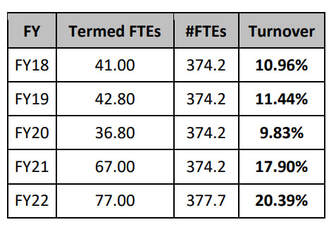
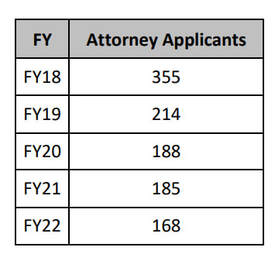
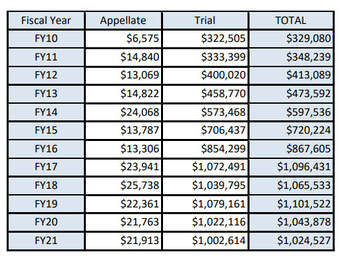
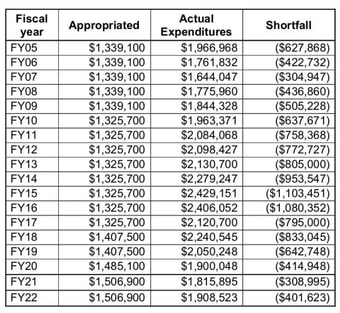
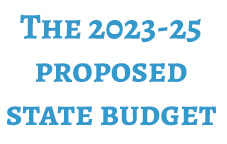

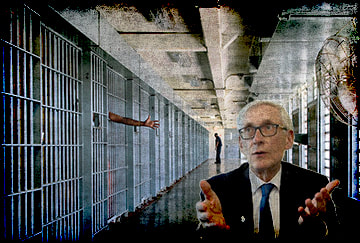
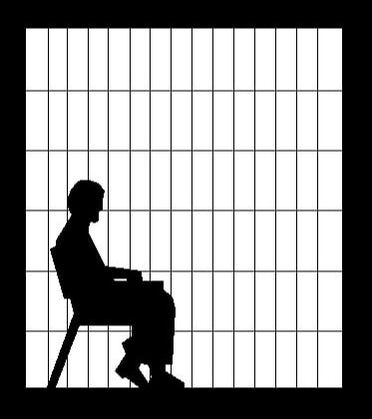
 RSS Feed
RSS Feed